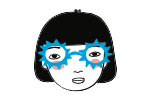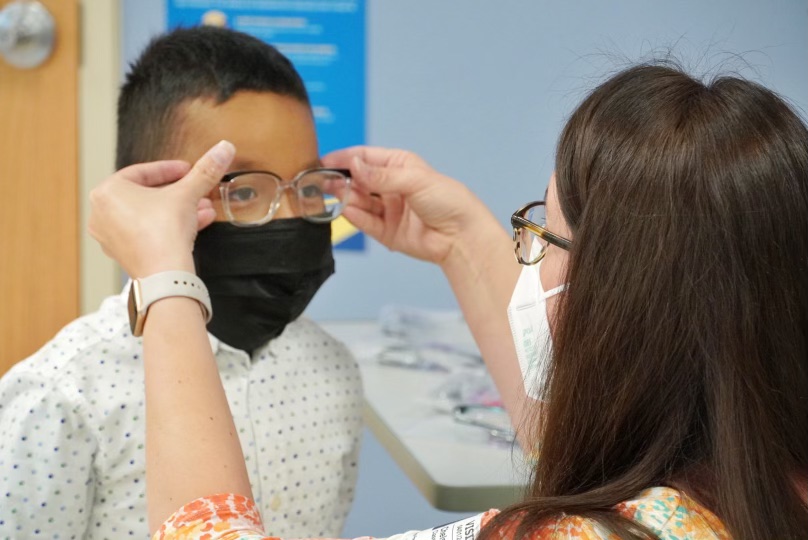What happens at a Clinic?
An eye exam involves a series of tests to evaluate vision and check for eye diseases. Our optometrists use state of the art equipment to evaluate the different aspects of your child’s vision and eye health. This allows optometrists to detect eye problems at their earliest stage — often before any major symptoms are present. Early detection increases the chances of successfully treating eye conditions and regular eye exams give eye care professionals a chance to help correct or manage vision changes.
Preparing Your Child
An eye exam can be an intimidating event. Help your child feel at ease by letting them know there are no wrong answers during an eye exam. Let them know that everyone’s eyes must be checked to ensure they are working their best and reassure your child that there will be no needles or anything that will hurt.
Bring your prescription eyewear
If your child wears glasses, have them bring them to their appointment. Our team will want to make sure their prescription is accurate.
Dilation
If determined necessary by our doctor, your child’s eyes may be dilated with the use of eye drops. Dilation is a procedure that increases the size of a patient’s pupils. This allows the doctor to look at the retina and optic nerve and determine their level of health. If this is the case, the half Helen team will provide your child with a pair of disposable sunglasses to wear until the effects of the drops wear off. For more information on dilation, click here.
Taking care of your new glasses!

Clean your glasses daily
Glasses are constantly exposed to dirt, dust, and smudges. Cleaning your glasses daily ensures that they remain clear and keep your eyes from straining through dirty lenses.

Proper Cleaning Technique
Cleaning your glasses should never start with wiping them while they are dry. Rinse them with water or spray them with a glasses cleaning solution. Dry-wiping your glasses can move around particles of dust on the lenses and result in scratches that can damage any special coating on the lens.

Wipe your glasses with the right cloth
Use a microfiber cloth to wipe your glasses. NEVER dry your lenses with paper towels, tissues, or napkins. Their textured surfaces can badly scratch your lenses. If you don’t have a microfiber cloth, you can always let your glasses air dry.

Always place your glasses face up
when not using them
If you need to take your glasses off momentarily, fold the temples in and rest them down with the lens facing upwards. Laying the lenses down on a surface can result in scratches.

If they’re not on your face,
they belong in their case
Whenever you’re not using your glasses, store them in a pouch or case. This keeps the lenses from getting scratched and ensures that the temples do not get bent.

Stay Connected
Stay connected to help children reach their full potential through clear vision. Sign up for email. Receive inspiring stories, eye care tips, resources and more.
